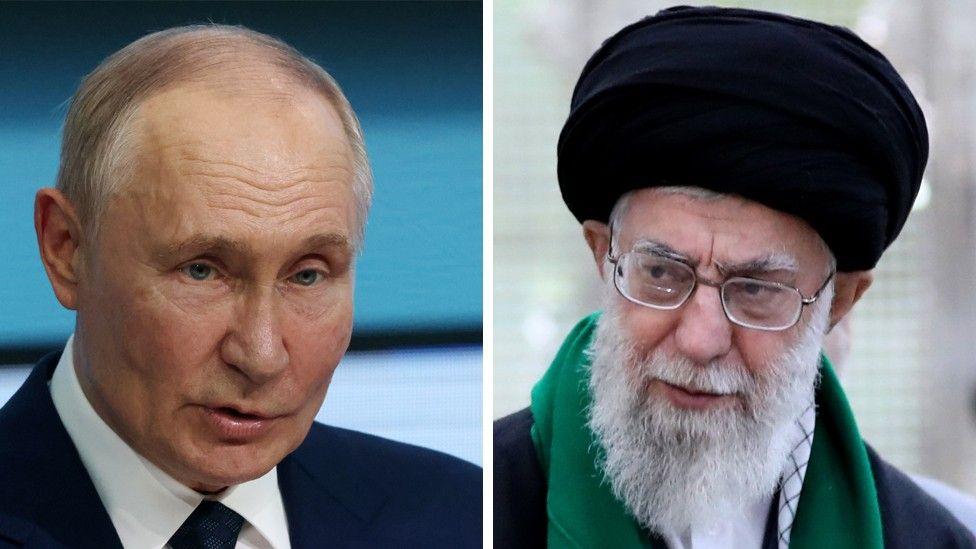In a recent address, Ken McCallum, the head of MI5, revealed alarming insights into the rising security threats faced by the UK. He indicated that Russia’s intelligence agency, the GRU, is actively pursuing a strategy to incite chaos across British and European cities, a response likely provoked by the UK’s support for Ukraine amid its ongoing conflict with Russia. McCallum emphasized worrying trends in Russian operations within the UK, categorizing them as increasingly brazen and varied, encompassing actions like arson and sabotage. Acknowledging MI5’s challenges in tackling these threats, he suggested that the agency is faced with a complex and multifaceted landscape of risks, which now includes not only terrorism, primarily stemming from Islamist extremism and extreme right-wing groups but also aggressive actions from state actors like Russia and Iran.
McCallum outlined the troubling statistics behind the national security situation, noting that MI5 has successfully thwarted 43 late-stage terror plots that aimed at mass murder since 2017. He stressed that the volume of investigations pertaining to state threats has surged by 48%. Furthermore, the operational focus of MI5 remains primarily on Islamist extremism (75%) contra right-wing terrorism (25%). This duality accentuates the breadth of ideologies the agency must navigate while maintaining vigilance against state-sponsored threats. In a sobering depiction of the security landscape, he remarked that while his early career was dominated by tackling terrorism, the current atmosphere includes state-sponsored assassination and sabotage—a reflection of the broader geopolitical instability highlighted by Russia’s invasion of Ukraine.
The ongoing conflict has seemingly made the UK a target in the eyes of the Kremlin, with McCallum asserting that Britain’s prominent role in supporting Ukraine contributes to its significance in Russian strategy. He anticipated further aggressive actions against the UK, especially in light of the already tentative current terror threat level, which has been deemed substantial. In the wake of the Ukraine crisis, over 750 Russian diplomats have been expelled from Europe, most of whom were revealed to be spies, inadvertently impairing Russian intelligence operations. However, McCallum noted a possible shift in strategy from Russian state actors, who now appear to favor using proxies—such as underworld criminal organizations—to execute their objectives, which, juxtaposed against their former methodologies, may result in a decrease in operational efficacy and an increase in detectability.
On the Iranian front, the threat landscape has also expanded. Following the killing of Mahsa Amini in 2022, there has been a marked escalation in plots linked to Iranian state actors targeting individuals in the UK, with the number of these incidents having doubled since 2021. McCallum’s remarks indicated that Iranian state aggression persists despite potential repercussions, and he committed MI5’s resources to combat the increasing urgency of these threats. The shift toward criminal underworld collaborations highlights a concerning trend where traditional diplomatic channels are bypassed, allowing for more clandestine and potentially reckless actions on British soil.
The growing influence of online extremism among youth emerged as another significant concern during McCallum’s address. He revealed that 13% of individuals investigated for terrorism-related activities are under 18, highlighting a troubling trend that has tripled over the past three years. The accessibility of extremist content on the internet contributes significantly to this phenomenon, with a particular emphasis placed on the role of online propaganda in grooming young individuals, especially within the sphere of extreme right-wing ideologies. McCallum described the challenges posed by online radicalization and the difficulty in distinguishing between credible threats and mere online chatter, stressing that the nature of contemporary radicalization blurs the lines between virtual and real-world actions.
During a press conference following his address, McCallum reiterated the internet’s pivotal role in facilitating extremism, warning that vulnerable youth are being exposed to dangerous ideas and networks through their personal devices, often without parental or guardianship oversight. Recent figures revealed that of 242 individuals detained for terror offences, nearly 17%—or 40 people—were aged 17 and under, further validating concerns about the youth demographic in extremism. Opposition leader Sir Keir Starmer acknowledged the gravity of the findings presented by McCallum while offering reassurance regarding the UK’s security apparatus, emphasizing the dedication and capability of MI5 and other agencies in ensuring public safety amidst evolving threats.
The intersection between state-sponsored threats and homegrown extremism presents a daunting challenge for MI5 and UK security forces, necessitating robust and proactive measures to counteract such diverse forms of aggression. The increasing number of state-sponsored espionage activities and plots tied to hostile entities underscore the urgency of security assessments and policy responses to safeguard the nation’s interests. The convergence of these threats, compounded by a wave of youth radicalization fueled by online misinformation and propaganda, calls for comprehensive strategies to educate, mitigate, and combat extremism effectively while navigating the intricate web of domestic and international security dynamics. The UK remains in a period of heightened alert, indicating that the next phase of counter-terrorism and intelligence efforts must adapt to counteract the growing spectrum of risks while prioritizing national security and public safety in an increasingly volatile global environment.

